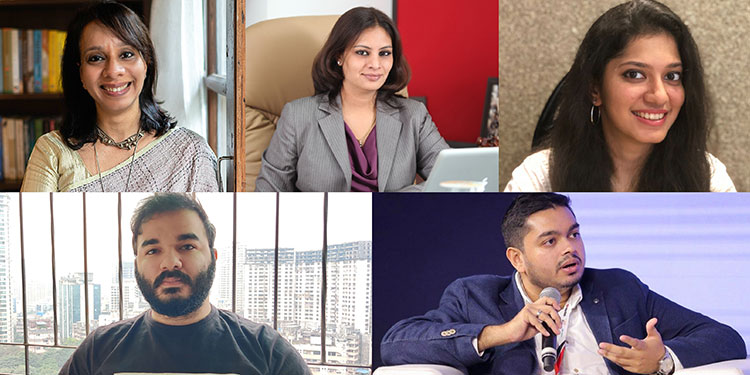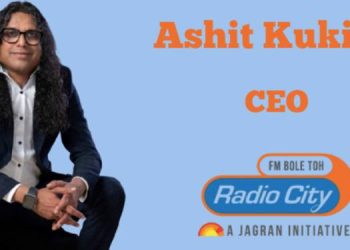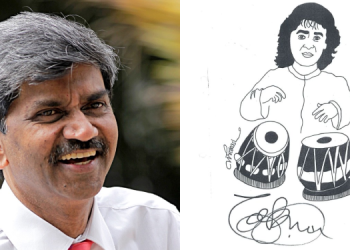The Ministry of Electronics and Information Technology (MeitY) and Ministry of Information and Broadcasting jointly introduced the Information Technology (Intermediary Guidelines and Digital Media Ethics Code) Rules 2021 on February 25 to put restrictions on digital platforms, this rule is now applicable from May 26.
As per the Guidelines, the platforms should appoint a Chief Compliance Officer responsible for ensuring compliance with the Act and Rules. Such a person should be a resident in India. The media should appoint a Nodal Contact Person for 24×7 coordination with law enforcement agencies. The Resident Grievance Officer who shall perform the functions mentioned under Grievance Redressal Mechanism should also be appointed.
The guidelines also direct the platforms to publish a monthly compliance report mentioning the details of complaints received and action taken on the complaints and details of contents removed proactively by the significant social media intermediary.
Social media platforms like Twitter, Facebook and YouTube, have failed to comply with the new legal rules set by the government. At the same time, Indian messaging platform Koo said it had complied with the new rules. The platforms might lose their status and protections as intermediaries and may face criminal action in India.
We at medianews4U spoke to a few Digital Specialities on this move.
Neena Dasgupta -CEO & Director at Zirca Digital Solutions
I believe that a mutual understanding will and should be achieved, and we will not reach a situation of the ban. A disruption for a couple of days might happen but eventually, peace shall prevail. However, if the ball does drop, it will have a severe impact on multiple facets of society. While there are a lot of brands who are depending upon these social platforms for marketing will get affected, there is also a large number of entrepreneurs whose livelihood is dependent on these platforms. Apart from that, millions of people use these platforms for more than just entertainment, but information and communications as well. I don’t even want to mention the discussion/debate that will erupt on freedom of speech/ freedom of expression and the social/civil unrest that will happen due to politicizing the whole issue. Also, the timing of this whole thing could be catastrophic in some sense. In the fight against Covid, Twitter and FB have been extremely helpful platforms in dire situations. If the ban does come into effect, it will impact our fight against Covid and that right now should be everybody’s priority. Guidelines can be enforced anytime, but lives lost will never come back.
Taaran Chanana, MD & Co-Founder of Meme Chat
The recent rumours of a possible ban on popular social media platforms have raised some concerns in key industries that rely on such apps for their messaging. In fact, social media has emerged as a critical vehicle for marketing across different sectors. The fear also comes from what happened with PUBG and TikTok in the past. The ban on these platforms meant a loss of user data and consumer reach. As a result, we are seeing a dramatic spike in user activity on MemeChat. Where the average usage is 60-70 thousand memes a day, we have already crossed the 100K mar and expect to record double our typical usage by the end of the day. On Twitter ‘ChaloMemeChat’ started trending as many users opted to use the platform to preserve their data and find a more lucrative means of making memes.
Shahir Muneer, Founder and Director, Divo
In many countries, social media apps are in the ambit of an intermediary, including in India and they lie under the safe harbour act in many countries, and hence not responsible for the actions of their user and the content they post. Every country in the recent past has had a certain level of government involvement in making social media responsible for putting certain policies in place or have regulation of content in social media platforms. USA had senate hearings with all of the major social media platforms, especially with the Cambridge Analytica and Russian involvement in US election, which led to the global rollout of policies and procedures for disclosure of funding of political ads has to be seen by users publicly, EU passed a law known as GDPR which has been implemented by all the social media platforms to ensure data protection and privacy, and so forth.
So there is definitely a need for both self-regulation by the social media platforms and government-led policy to avoid fake news, hate, racism, abuse, child abuse, etc. As the requirement is mentioned in news states the requirement to takedown flagged content within 36 hours, it would be important to know what are the guidelines to content that is considered valid to be flagged and get taken down, as that is what will matter. As long as there is a fair and transparent process like seen in the hearings and its impact on users is also known publicly, and what comes under the ambit of valid content and content that violates the guidelines, this will be a needed and good precedent. But of course, as we know with power comes responsibility and cannot be one-sided where content gets taken down that favours one side of the conversation.
Snehja Sanganeria, Co-Founder, Meraqi Digital
If social media platforms are banned starting tomorrow, it would be a very bold step and lead to a lot of disturbance across the common public of the nation. In today’s times, social media is not only a source of entertainment or means of communication, or about staying in touch with people but it has also become a platform for income for influencers, content creators, agencies etc. and their livelihood depends on it. Even companies depend on social media ads to promote their business especially in the pandemic, where ad spends have shifted towards digital.
Even if this ban happens, it would be temporary and eventually, the government and social media platforms would come to an agreement to sort out the problem. If not, there will be quite a bit of backlash against this rule as the lives of the masses will be affected.
Ambika Sharma, Founder & MD, Pulp Strategy
For a seamless and balanced interface with the public, accepting and abiding by the laws of the land is necessary. It is important for every country that media giants like Facebook, Twitter, Instagram, Whatsapp must have checks and balances to ensure that their reach is used for the right purposes while protecting the rights of the citizens and the country.
Keeping a Chief Compliance Officer, Nodal Officer, Resident Grievance Officer is a requirement by law of the land, it effectively will enable dealing with the public interface when there are multiple complaints. In light of the misuse of social media the digital platforms must also comply with the law like other systems of mass information like TV and radio. While it will be unfortunate if Twitter or any other platform gets banned due to non-compliance but if they are allowed to operate outside of the law and become tools of mischief directed at any citizen it will be worse. In the long run, it’s about commerce, India is a huge market with massive potential any product-focused on profitability will comply with its laws. They have in other countries, so India should receive the same reverence.

















